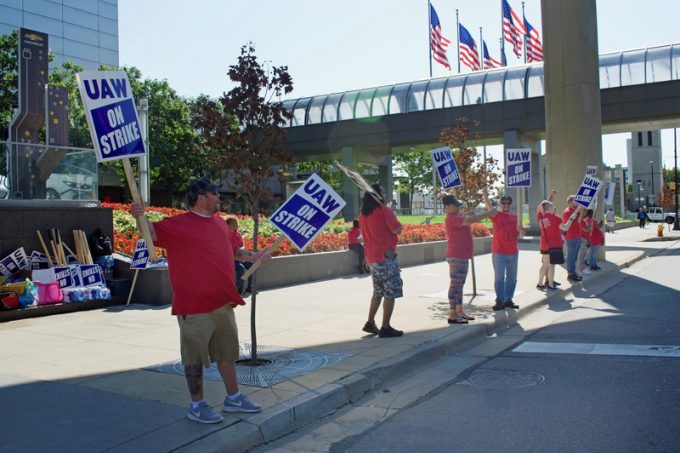Business calls for end to French port strikes, but unions plan more
French industry body the Mouvement des Entreprises de France (MEDEF) is demanding a swift end ...

The strike called by the United Auto Workers (UAW) against the big three US carmakers went up a notch on Friday, as the union targeted spare parts centres serving General Motors and Stellantis.
So far there have been some hiccups in supply chains, but logistics providers are still waiting to see a major impact.
One week into contract negotiations, the UAW upped the ante with a second wave of strike action. In the first step, some 13,000 workers downed tools at three ...
'Disastrous' DSV-Schenker merger would 'disrupt European haulage market'
New senior management for DSV as it readies for DB Schenker takeover
Volumes set to 'fall off a cliff' as US firms hit the brakes on sourcing and bookings
Asian exporters scramble for ships and boxes to beat 90-day tariff pause
Amazon pushes into LTL for small package fulfilment and UPS does a u-turn
Temporary tariff relief brings on early transpacific peak season
Pre-tariff rush of goods from US to China sees air rates soar, but not for long
Forwarders 'allowing the fox into the chicken run' by supporting 'hungry' carriers

Comment on this article